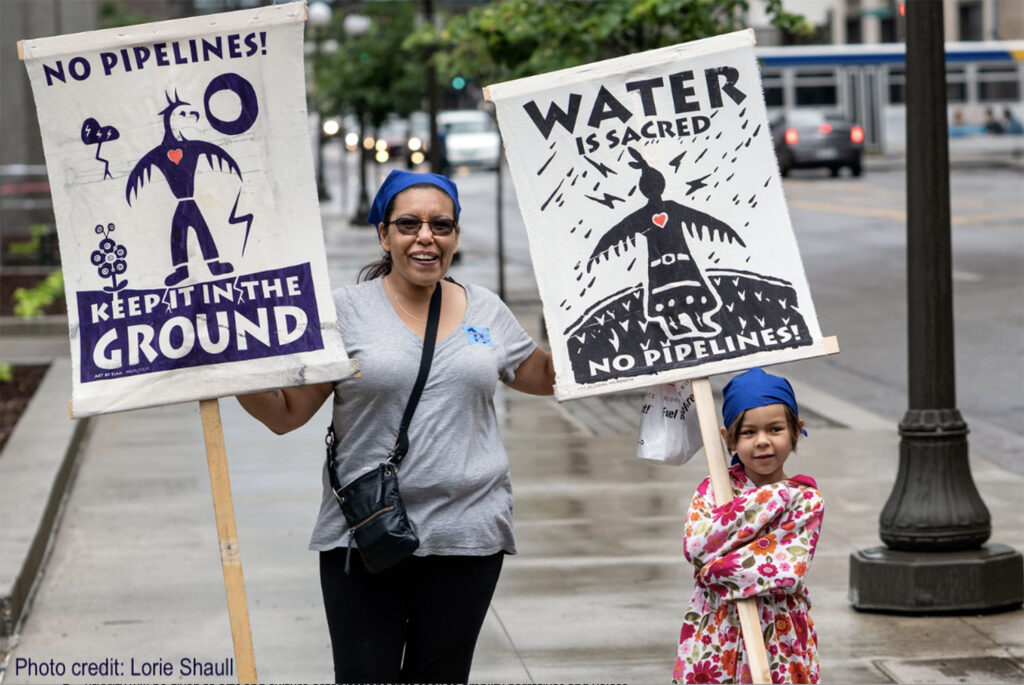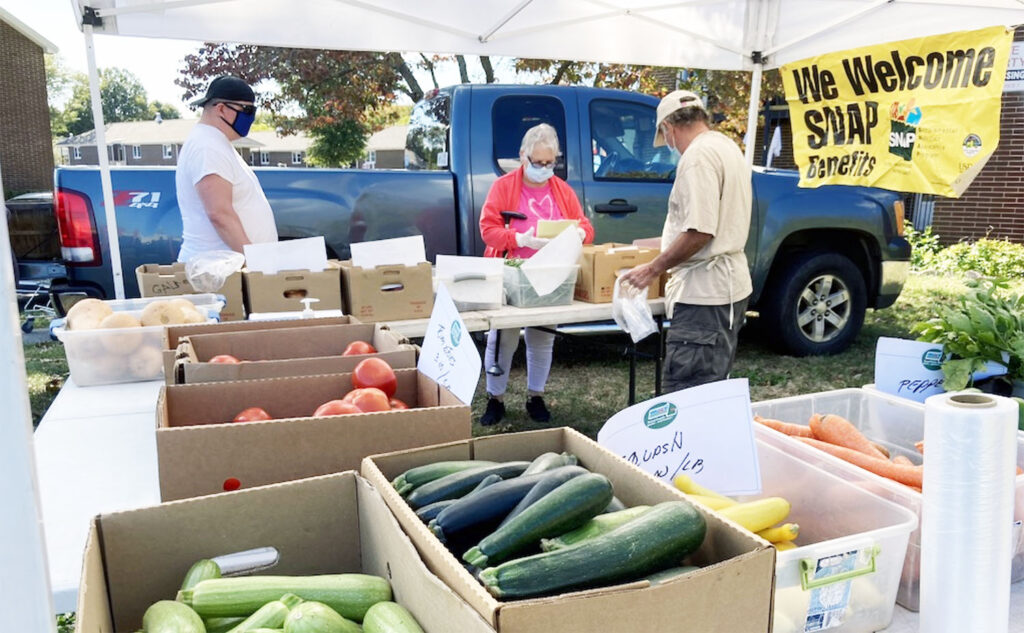S.H.E. Kindness Policy Program

The S.H.E. Kindness Policy Program collaborates with key national and state partners to:
- Support and successfully pass and implement impactful public policies
- Develop and implement strategic campaigns to shift the policies of public and private entities
- Participate in state and national advocacy days and
- Promote weekly Take Actions on a wide variety of policy issues related to sustainability, health, equity and kindness
Take Action Today
By Preston Merrill, Alliance Intern from Brandeis University ‘25
In a monumental win, a federal judge ruled in favor of the Bad River Band of Lake Superior Chippewa in their long-term fight against the expansion of the Line 5 oil pipelines in their homeland of northern Wisconsin. The judge found that energy company Enbridge is illegally trespassing on the Bad River Band’s reservation. Despite this ruling, the Army Corps of Engineers is rapidly pushing the permit process forward to help Enbridge maneuver the pipeline around the perimeter of the reservation, continuing to harm the surrounding ecosystem.
EarthJustice has created a campaign working with the Bad River Band to counter the efforts of Enbridge and the Army Corps of Engineers, underlining its negative environmental impacts and disregard for Indigenous voices. Please join the Alliance in signing EarthJustice’s petition to tell the Army Corps of Engineers to conduct a full Environmental Impact Statement and reject the Line 5 reroute project.
Eating Healthy? Think Again – Ban Hidden Dangers in Your Food
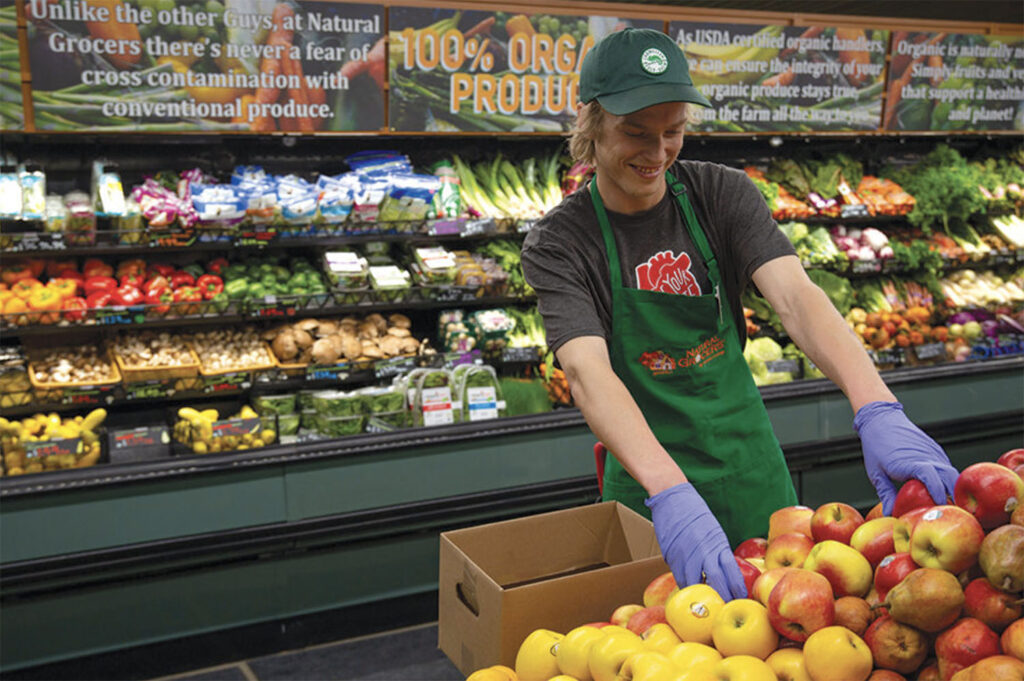
By Cate Rosa, Alliance Intern from Boston University ‘26
A shocking 20% of fruits and vegetables tested in the US pose a “high risk” to public health, and even more alarming, 12 specific commodities are so hazardous that children and pregnant women should limit them to just one serving per day, according to Consumer Reports’ (CR) investigation into the USDA’s Pesticide Data Program. Organic farmers use effective, safe alternatives to hazardous pesticides, but they often cost more, so the USDA’s risk-benefit analysis permits the use of toxic chemicals instead of requiring organic options.
These disturbing findings reveal severe threats within our food system, prompting CR to urgently petition the EPA and Congress to ban the deadly organophosphate and carbamate pesticides. Together, we can ensure that our food is safe for everyone and promote organic farming as a viable alternative. Join the Alliance in signing CR’s petition to push for a healthier, safer food system for generations to come.
Stop Fossil-Fueled Forest Fires

By Bryanna Lewis, Oregon State University ’25
New research by the Union of Concerned Scientists shows fossil fuel producers like Chevron and ExxonMobil are responsible for 37% of the total area burned by forest fires since the mid-1980s in the western US and southwestern Canada. For decades, these companies have known about but failed to publicly reveal the destruction that would occur as a result of their greedy actions. They will continue to deceive the public, profiting while people like me breathe in toxic smoke and fear for their lives and property during record-breaking wildfires every year.
We can’t sit back and watch our communities go up in smoke while corporate profits soar. Companies need to act in alignment with the goals of the Paris Climate Agreement and reduce the risk of wildfires. Join the Alliance in sending a letter urging fossil fuel CEOs to respond to demands from the public and their own shareholders to slash heat-trapping emissions from their operations and products.
By Cate Rosa, Alliance Intern from Boston University ’26
12.5% of the US population relies on the Supplemental Nutrition Assistance Program (SNAP) to meet their daily nutritional needs. With rising food costs and evolving dietary guidelines, it’s crucial that SNAP benefits keep pace with the latest nutrition science and the realities of today’s economy to ensure that every family can afford a healthy diet. The Thrifty Food Plan was a significant step forward, “lifting 2.3 million people out of poverty and reducing child poverty by 8.6%”, but it needs to be regularly updated for inflation and new dietary recommendations.
We need your voice to tell Congress to keep modernizing SNAP and protect the Thrifty Food Plan in the next Farm Bill. By ensuring that SNAP benefits reflect the latest in nutrition science and economic conditions, we can help create a more equitable food system that supports the health and well-being of our communities. Join the Alliance in signing Feeding America’s letter to Congress – together, we can ensure that no family has to choose between hunger and health.
End Cruelty, Embrace Compassion — Stop Animal Testing in Cosmetics
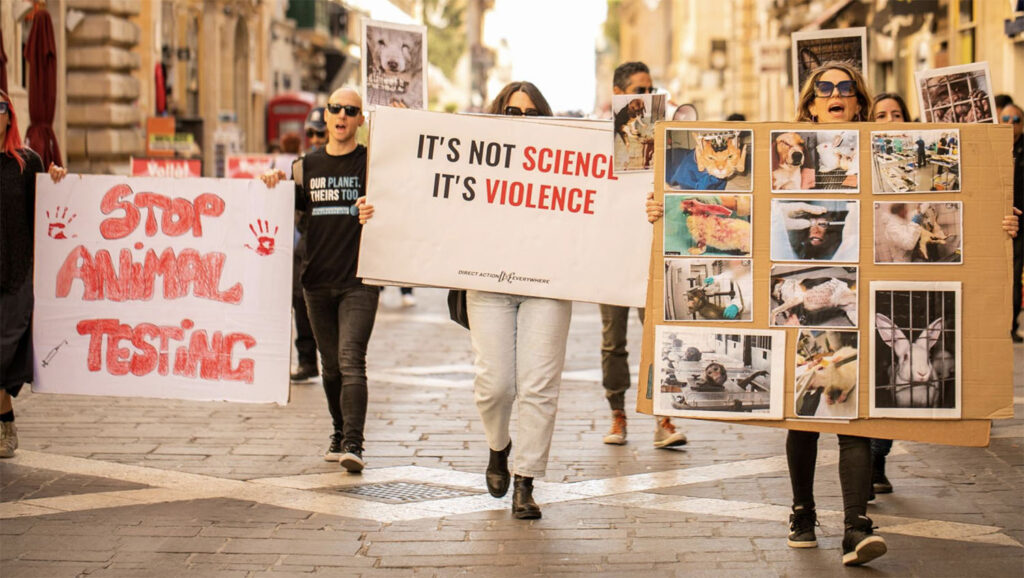
By Alexandra Isham, Alliance Intern from Ohio State University ’25
Many animals in the US suffer through painful experiments for cosmetics, such as lipstick, shampoo, deodorant and other products. Animal testing is a cruel and unbearable process for these innocent beings as they are injected with harmful chemicals without any form of pain relief, causing immense suffering and usually leading to their death. Safer alternatives do exist, including the use of existing ingredients and non-animal tests which are faster, cheaper and more reliable in predicting product safety.
The Humane Cosmetics Act (H.R. 5399) has been introduced to put this brutality to an end by banning animal testing for all cosmetic products that are made or sold in the US. There is precedent at the state level as Gov. Jay Inslee of Washington signed legislation (H.B. 1097) prohibiting the sale of newly animal-tested cosmetics in the state. Please join the Alliance in signing the Humane Society of the US letter to Congress calling for passage of the Humane Cosmetics Act which will stop the inhumane testing on rabbits, guinea pigs, mice and rats.
Preserve Our Last Resort — Protect Mifepristone Access from Anti-Choice Attacks
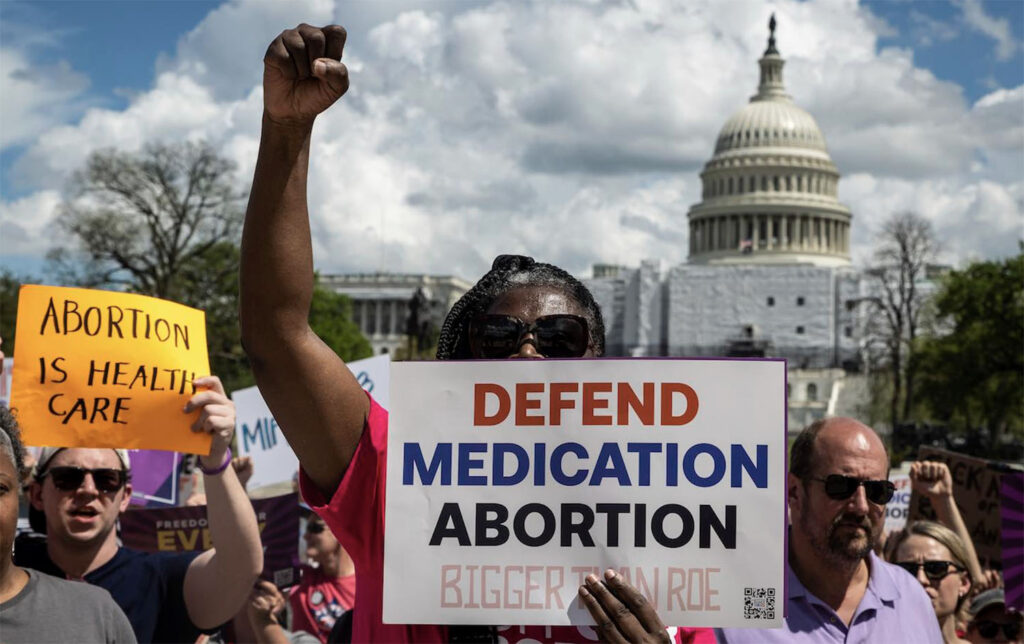
By Cate Rosa, Alliance Intern from Boston University ’26
The Supreme Court’s Dobbs decision was a clear assault on reproductive rights. Fortunately, individuals in need of an abortion still had access to an alternative: mifepristone – the FDA approved “abortion pill” that accounted for 63% of US abortions in 2023. However, in another desperate and invasive attempt to limit our rights and bodily autonomy, anti-abortion leaders are seeking to deny access to mifepristone by resurfacing an 1873 law – known as the Comstock Act, which bans mailing of materials used to produce abortions.
While the Biden administration has stated the Act is not applicable under current laws, this stance isn’t set in stone for future administrations. Based on the results of the upcoming election, there’s a real possibility that the law could be leveraged to restrict abortion access and even care provided for miscarriages. It’s crucial that we act now to overturn this outdated law and shield ourselves from potential GOP efforts to curtail our autonomy. Join the Alliance in signing Move On’s petition to protect access to reproductive healthcare.
Stop Canada from Killing Baby Seals

By Bryanna Lewis, Oregon State University ’25
Climate change is destroying the sea ice habitat necessary for baby seals to survive, and thousands are dying as you read this. Astonishingly, the Canadian sealing industry wants to increase seal slaughter. Despite the Canadian government admitting populations are as low as 3.5 million, there are indications the government is working to expand commercial sealing to over 600,000 animals per year. Innocent baby seals, most under three months old, have fought to survive their first moments and will be brutally tortured and killed for fur coat production.
Trading in seal products has been banned in 38 countries and continues to grow. People around the world, including most Canadians, have loudly rejected the cruel and inhumane slaughter of baby seals in Atlantic Canada. It is long overdue for the Canadian government to start caring about the welfare of animals. Join the Alliance in signing Humane Society International’s letter urging the government to finally end the commercial seal hunt and take immediate legislative action to protect baby seals from further horrific suffering.
Get Green Giant and Other Brands to Go Green

By Imani Holmer, Alliance Intern from U California Berkeley ‘25
There are so many iconic brands that many of us have grown up with that are near and dear to our hearts. You may not know it, but B&G Foods, their parent company, uses pesticides, monocropping and other detrimental farming practices. These practices lead to water pollution and pollinator loss. Fortunately, there is an alternative, and you can help make it happen.
B&G Foods can transition to regenerative agricultural practices and significantly lessen their environmental impacts through crop rotation, no-till farming, and integrative pest management. This shift could make a world of difference. Please join the Alliance in signing Green America’s petition demanding that B&G Foods take responsibility for their actions by implementing regenerative agricultural practices now.
Stop House Attacks on Environmental Groups Seeking Corporate Climate Action
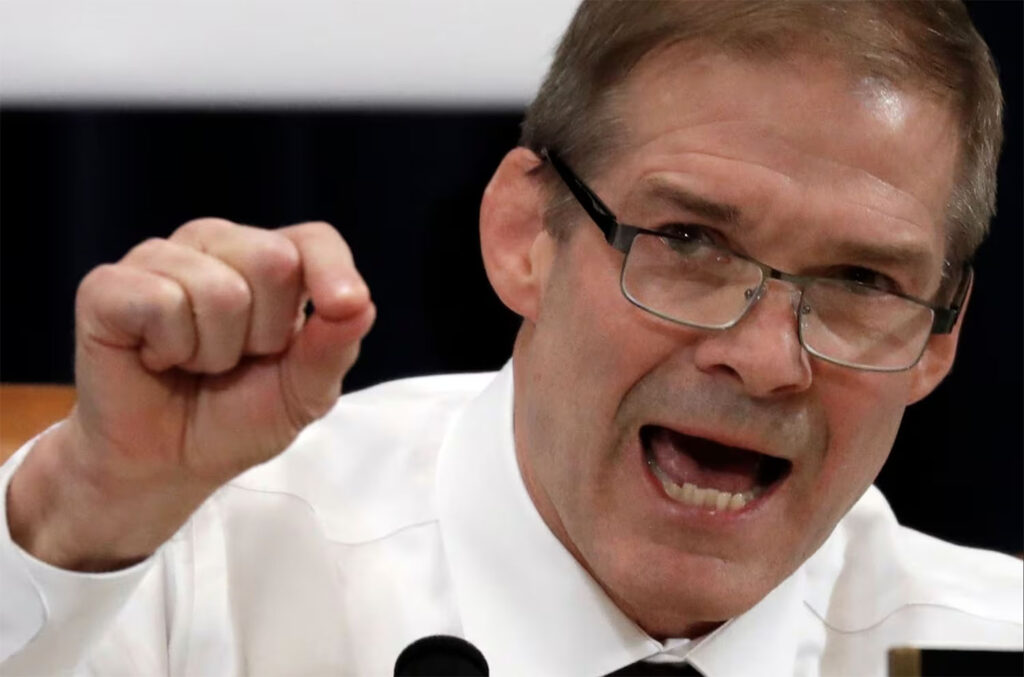
By Imani Holmer, Alliance Intern from U California Berkeley ‘25
The effort to simply ask companies to reduce their carbon emissions is under attack by House Republicans, even as the US had 28 major climate-related disasters costing $92.9 billion. The Republican-controlled House Judiciary Committee is using their time and taxpayer dollars to open an antitrust investigation targeting shareholder activist As You Sow and 13 other groups working to secure corporate action on climate. This is an attempt to mire environmental groups in expensive legal battles while lining right-wing pockets with oil and gas money.
Investors have a legal right to interact with other shareholders and the companies in which they hold a financial stake. They also have the right to point out the grave economic risks of climate change. Join the Alliance in sending Green America and Action Network’s letter to your US Representative to stop the Republican attack on climate progress and call out its waste of time and taxpayer dollars. The letter also asks your Representative to join the Sustainable Investment Caucus that is standing up for our freedom to invest responsibly.

